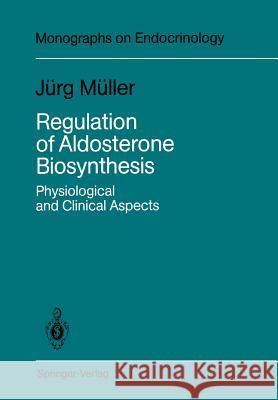Regulation of Aldosterone Biosynthesis: Physiological and Clinical Aspects » książka
Regulation of Aldosterone Biosynthesis: Physiological and Clinical Aspects
ISBN-13: 9783642831225 / Angielski / Miękka / 2011 / 364 str.
Sixteen years is a long time, not only in human life but also in the rapid history of contemporary endocrinology. Since the publication of the first edition of this monograph, numerous new lines of research and discoveries have greatly contrib uted to our knowledge of the physiological and pathological regulation of aldos terone biosynthesis in man and animals. The first reports about a sensitive ra dioimmunoassay for plasma aldosterone and about a preparation of dispersed zona glomerulosa cells were published in 1970 (Mayes et al. 1970; Haning et al. 1970). These two developments alone turned out to have a tremendous impact on research in aldosterone physiology (for reviews see Coghlan et al. 1979b; J. F. Tait et al. 1980b). In 1971, atrial natriuretic peptides, somatostatin, and the precursor molecule of ACTH had not yet been discovered. Angiotensin antagonists and con verting-enzyme inhibitors were not yet available. The clinical syndrome of hypo reninemic hypo aldosteronism was unknown. The possible roles of prostaglandins and dopamine in the control of aldosterone pwduction had not been considered. Cyclic AMP was then the only substance with a clearly established second-mes senger function.











